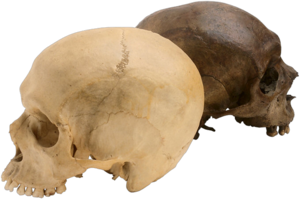Finding Your Ancestors

I think that most of us have at least a little bit of curiosity about our ancestry. Growing up in Europe, most people have quite a good idea where they came from. It is very different in the “New World.”
People here often have deeply personal reasons for wanting to know their ancestry. Some hope to validate genealogical records or fill in gaps in family histories. Others are searching for a connection to specific groups or places in Eurasia or Africa. Many African Americans hope to trace ancestral links lost during the slave trade. Other hope to obtaining Native American tribal affiliation or to challenge tribal membership decisions.
Hence the proliferation of services offering genetic analyses to individuals. And it has become big business.
A quick search on Google just found least two dozen companies who market genetic ancestry tests to help people discover the origins of their ancestors. The tests typically cost between $100 and $900, and in the United States alone it is said that more than 460,000 people have purchased the tests during the past six years.
But there have been lingering doubts about the value and accuracy of the tests.
In “The Science and Business of Genetic Ancestry Testing,” which appears in the today’s issue of the journal Science Deborah Bolnick, assistant professor of anthropology at The University of Texas at Austin and 13 researchers from universities across the country call upon the scientific community to educate the public about the limitations of the tests, and also urge consumers to approach the tests with caution.
The writers argue that the assumptions and limitations of the tests make them less informative than many people realize. Secondly, the rapid commercialization of the tests may have led to misleading practices that reinforce misconceptions.
They make several important points:
- Most tests trace only a few of your ancestors
- Most only test a small portion of your DNA
- Tests are not likely to identify all of the groups or locations around the world where a test-taker’s relatives are found
- When we do genetic research we spend a great deal of time checking and re-checking the accuracy of the tests. But commercial tests may report false negatives or false positives
- Limited sample databases mean test results are subject to misinterpretation
- There is no clear connection between DNA and racial/ethnic identity: the similarities between the races are far greater than the differences
- Tests cannot determine exactly where ancestors lived or what ethnic identity they held
There is also an excellent feature story, entitled “Deep Roots,” that may interest you.
Caveat emptor!






